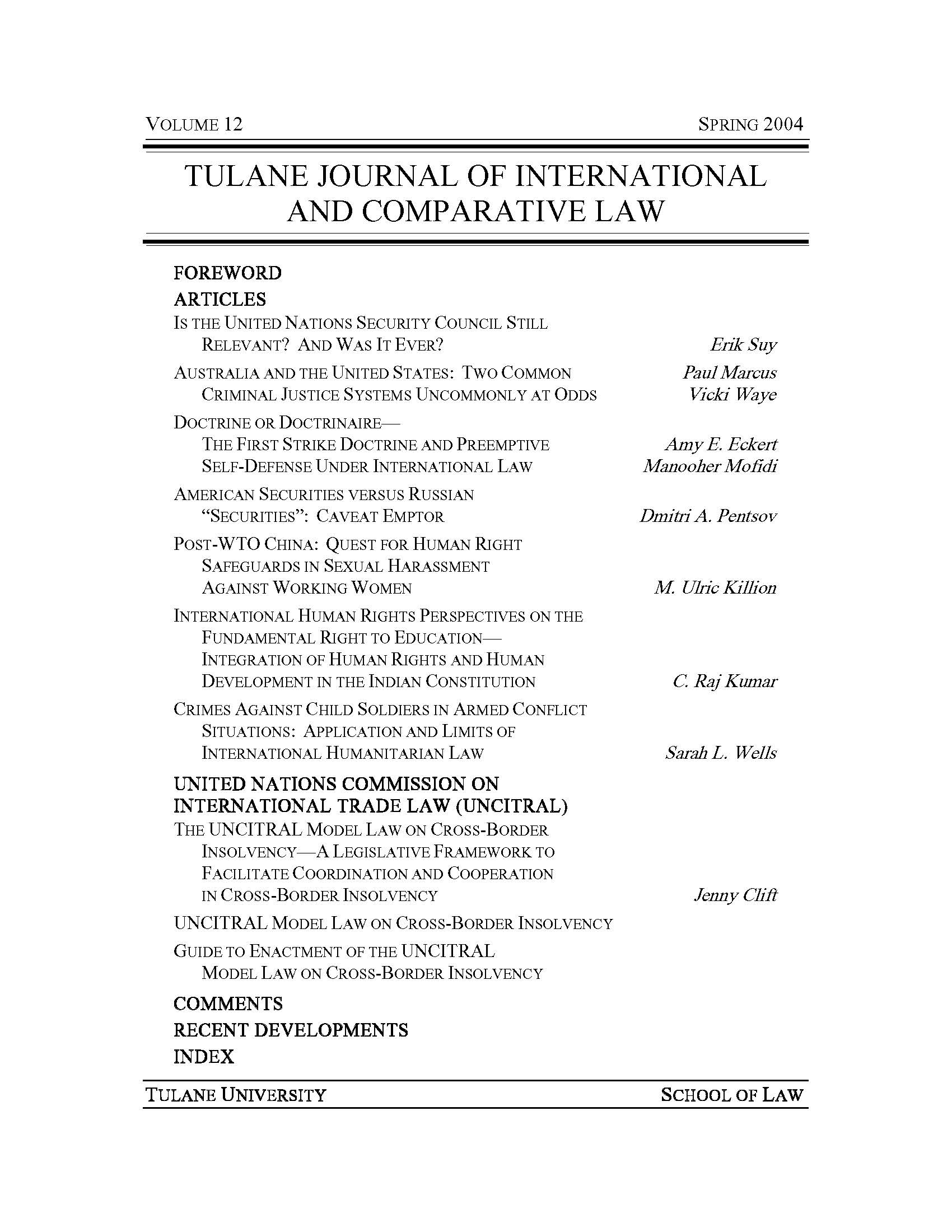Post-WTO China: Quest for Human Right Safeguards in Sexual Harassment Against Working Women
Abstract
In assessing China’s progress in human rights, sexual harassment of mainland women
workers is the most neglected dimension in the struggle for international human rights.
Notwithstanding other justifications for lack of a sexual harassment law, China’s polity eschews a
moral and political responsibility to redress sexual harassment in the workplace, by resort to
political rhetoric, rather than implementing effective legal safeguards.
Typical sources of legal safeguards, such as laws, constitutions, and international norms,
share a commonality of efficacy being primarily contingent on China’s policies of economic
development. China’s polity prioritizes socioeconomic rights over civil-political rights, by
espousing political rhetorical cultural relativism. All of which lends understanding to China’s
failure to promulgate sexual harassment laws, enforce international norms of human rights, and
allow meaningful interpretations of constitutional stipulations of equality. For women in mainland
China, a search for legal safeguards against sexual harassment in the workplace finds them without
recourse to meaningful international and domestic judicial remedies, while nonjudicial remedies
remain without efficacy.
